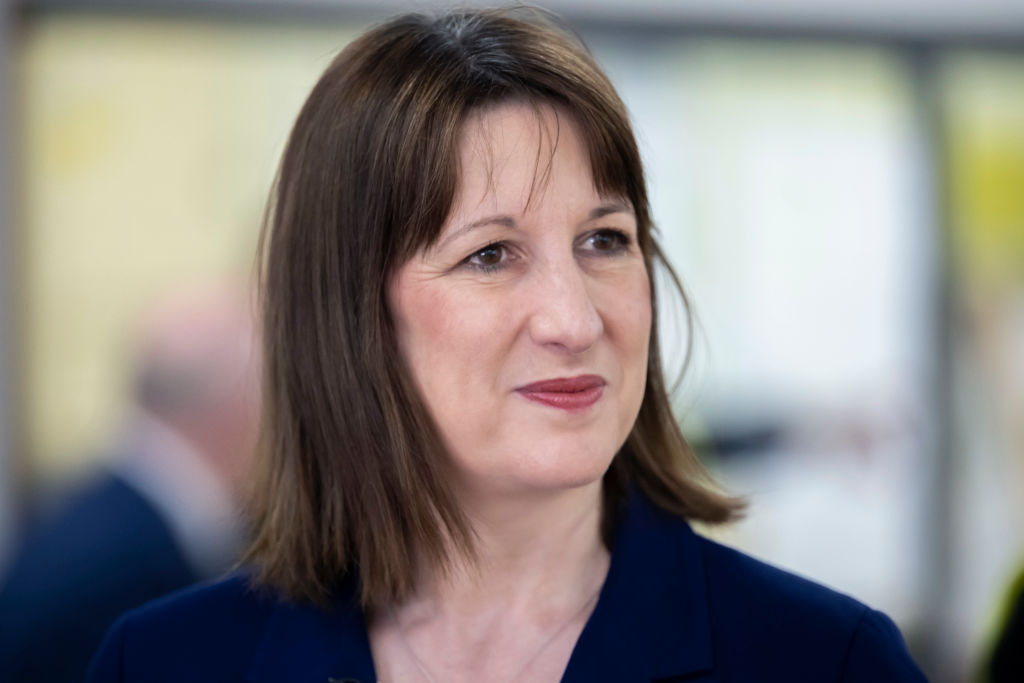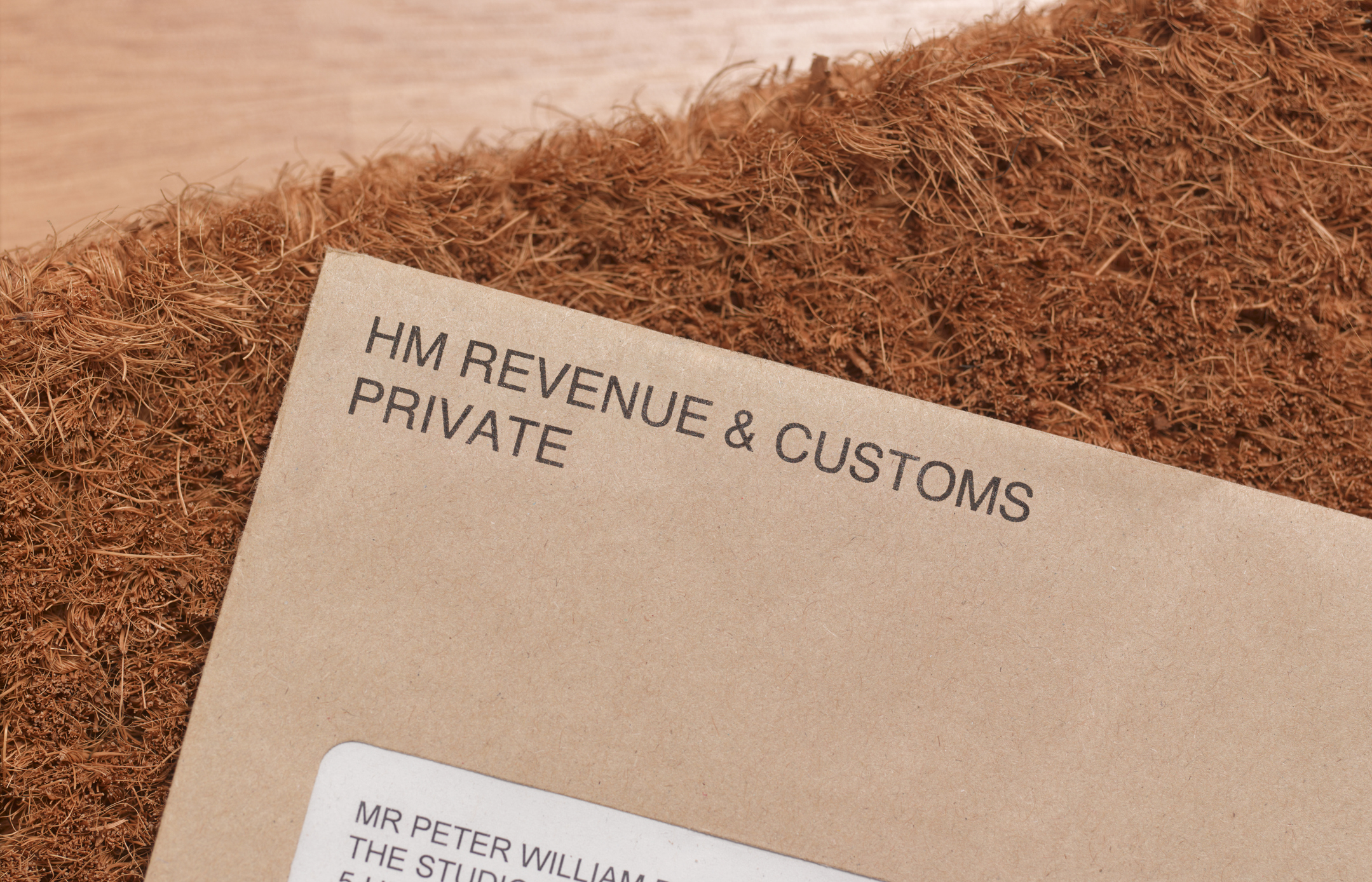Nine ways to reduce your inheritance tax bill
The government has collected a record amount of inheritance tax in recent years – but these steps could help you cut your bill

Laura Miller

Get the latest financial news, insights and expert analysis from our award-winning MoneyWeek team, to help you understand what really matters when it comes to your finances.
You are now subscribed
Your newsletter sign-up was successful
Want to add more newsletters?

Twice daily
MoneyWeek
Get the latest financial news, insights and expert analysis from our award-winning MoneyWeek team, to help you understand what really matters when it comes to your finances.

Four times a week
Look After My Bills
Sign up to our free money-saving newsletter, filled with the latest news and expert advice to help you find the best tips and deals for managing your bills. Start saving today!
Inheritance tax (IHT) is often voted one of the least-popular taxes in Britain, and the controversy surrounding the tax only seems to grow – along with the amount flowing from it into government coffers.
Inheritance tax income to the Treasury totalled £2.22 billion through the first quarter (April to June) of the 2025/26 financial year, according to the latest data from HMRC. The figure represents an increase in inheritance tax receipts of £134 million, or 6%, compared to the same period in 2024/25.
Last year was already a fourth consecutive annual record haul, with £8.2 billion in inheritance tax collected. The OBR’s most recent forecast, published at the Spring Statement, projects another record year coming, as rising house prices and fiscal drag send bills higher and draw more families into the IHT net.
MoneyWeek
Subscribe to MoneyWeek today and get your first six magazine issues absolutely FREE

Sign up to Money Morning
Don't miss the latest investment and personal finances news, market analysis, plus money-saving tips with our free twice-daily newsletter
Don't miss the latest investment and personal finances news, market analysis, plus money-saving tips with our free twice-daily newsletter
IHT is predicted to generate £9.1 billion for the Treasury in 2025/26 and revenues are expected to raise more than £14 billion in the year 2029/30.
Changes in the 2024 Autumn Budget are likely to exacerbate the effect going forward, after the chancellor extended the freeze on IHT thresholds until 2030 and brought inherited pensions and AIM shares into the IHT net from April 2027 and April 2026 respectively.
The rules on business and agricultural property relief were also reformed, prompting a sharp backlash from farming communities and owners of family businesses, who could find themselves having to sell up to pay IHT bills they were previously able to avoid.
More recently it was confirmed the families who inherit a loved one’s pension will, from April 2027, have to pay inheritance tax on the pot even if the person dies before age 55, the current minimum age someone can start taking their pension.
It also seems Reeves is not done with inheritance tax yet. Rumours are circulating that she is considering tightening the IHT rules even further by cracking down on gifting rules. This could include limiting how much someone can gift to avoid IHT during their lifetime, as well as scaling back the taper rules that can reduce the IHT bill on gifts made within seven years of someone dying.
Despite this, there are still some steps you can take to cut your IHT bill and pass on more of your estate to your loved ones. We take a closer look.
1. Make a will
Making a will is the first step you should take. Without a will, your estate will be shared according to a set of pre-determined rules, known as intestacy. That means your loved ones may not receive what you want them to inherit.
Making a will also means you can specify things like who gets the family home. Decisions like this can impact how much inheritance tax is due. For example, if you leave the family home to your children or grandchildren, you may qualify for an additional tax-free allowance known as the ‘residence nil-rate band’ – more on that below.
2. Use your tax-free allowances
When you die, you can pass on an estate worth up to £325,000 before any inheritance tax is due.
If you leave the family home to a ‘lineal descendent’ such as a child or grandchild, you may also qualify for an additional £175,000 allowance, known as the residential nil-rate band. This additional allowance is tapered once your estate exceeds £2 million in value.
Married couples and civil partners can combine their nil-rate bands. This means a couple could theoretically pass on an estate worth up to £1 million to their children before any tax is due (£325,000 + £175,000 + £325,000 + £175,000).
Assets left to a spouse or civil partner are also exempt from inheritance tax. “But for those who are in a relationship but unmarried – whether co-habiting or not – the issue becomes more pressing,” says Ian Dyall, head of estate planning at wealth management firm Evelyn Partners.
“It could well be that many older couples in long-term relationships decide to tie the knot to make this problem go away, for a certain timespan at least,” he adds. Inheritance tax will still be due once both partners pass away and leave their assets to the next generation, if what they pass on breaches the nil rate band.
3. Gift assets in your lifetime
Giving away assets in your lifetime could help your loved ones pay less or avoid inheritance tax, but strict rules are in place to tackle tax evasion:
- Anyone can give up to £3,000 of their assets to loved ones each tax year without that sum becoming liable for IHT. If you didn’t use the allowance last year, you can combine it and pass on £6,000.
- You can give £5,000 to your children for their wedding, £2,500 to your grandchildren or great-grandchildren, and £1,000 to any other person.
- You can make further gifts as you please, but if you die within seven years of making the gift, IHT will be payable on a sliding scale known as taper relief. The tapering rules are commonly misunderstood and don’t apply to most gifts. Taper relief only applies if the total value of gifts made in the seven years before you die is over the £325,000 tax-free threshold.
You can also make gifts out of any excess regular income.
Gifts from surplus income are not subject to inheritance tax, no matter how large the amount. But to qualify, the gift-giver must be able to prove the gift has come from income rather than capital.
What’s more, the gift must not impact the giver’s quality of life.
4. Read up on changing pension rules
Historically, pensions have been a tax-efficient way to pass on wealth to loved ones, as inherited pensions currently fall outside of the IHT net. However, the rules are set to change in April 2027 after an announcement made in the 2024 Autumn Budget.
Dyall says: “The Budget rule change means retirees might not necessarily want to be sitting on a big pension pot when they die, as it will add to the value of the estate and could either create or add to an IHT liability.
“Moreover, under current rules, the pension IHT change could mean that some pots are ‘double-taxed’ if the holder dies at age 75 or older, because then the beneficiary could also be charged income tax at their marginal rate as they withdraw funds from the pension that has already been subject to IHT at 40%.”
For beneficiaries who are additional-rate taxpayers, this means they would receive just 33p for every pound of the inherited pension.
With this in mind, Dyall says retirees may want to consider drawing more heavily on their pension once they hit 75 rather than relying on other assets or savings to fund their lifestyle. Previously, many prioritised other savings because of the inheritance tax perks associated with pension pots.
The picture is complex, though, and largely depends on your personal circumstances. For example, if you decide to change your strategy and draw more heavily on your pension in response to the new rules, you need to weigh any IHT considerations against the income tax paid on pension withdrawals.
Dyall says this is especially true where the saver is “close to a big marginal tax step or paying the 45% additional rate of income tax”.
5. Consider investing in AIM shares
AIM is a branch of the London Stock Exchange that allows investors access to smaller companies. Historically, AIM shares have been exempt from IHT.
This is set to change from April 2026 after changes announced in the Autumn Budget, however AIM shares will still be more tax-efficient than other assets. Under new rules, the tax will be levied at 50%, giving an IHT rate of 20% (half the regular 40% rate).
With this in mind, it could be worth investing in AIM shares as part of a diversified investment portfolio. But bear in mind that AIM shares are often riskier than shares listed on the main stock exchange, as the businesses are smaller, less regulated and often more immature.
6. Be careful with your ISA
While ISAs are tax-efficient in many ways, remember that they still form part of your taxable estate when you pass away. This means up to 40% of your ISA could be eaten up by inheritance tax.
Furthermore, remember that ISAs lose their tax-efficient status on death (unless inherited by a spouse or civil partner). This means that the person you leave your ISA to will not be able to benefit from tax-free income and growth on the assets.
7. Use trusts
Trusts are a way of ringfencing assets and removing them from your estate to avoid inheritance tax, while you still retain some control over how the assets are used.
Usually if you survive seven years, there is no IHT to pay on the money held in the trust. However, if you do die within seven years of making a transfer into a trust, your estate will have to pay inheritance tax at the full amount of 40% (unless the taper rules mentioned above apply).
Since the government announced pensions would no longer be inherited IHT-free, trusts are playing a larger role when it comes to financial plans. Wealth manager Quilter saw an increase of almost 200% in the number of trusts opened in 2024 compared to 2023, and uptake in 2025 is already on track to far surpass this level, it said recently.
8. Take out a life insurance policy
If you are worried that your loved ones could face a large inheritance tax bill, taking out a life insurance policy – also known as ‘inheritance tax insurance’ – could help them manage the liability.
However, you need to have the policy written into trust, otherwise the payout will form part of your taxable estate, which is an inheritance tax mistake many people make.
“You pay the monthly premiums and when you die the trustees (your beneficiaries) can use the proceeds to promptly settle the IHT bill,” Dyall explains.
“This can also have the added benefit of saving executors some potential stress as it will provide accessible funds to settle the IHT liability with HMRC, which must be done before probate is granted,” he adds.
A financial adviser or legal expert will be able to provide you with further guidance on this process and whether it is right for you.
9. Donate to charity
Finally, if you donate at least 10% of your estate to charity, you could get a four percentage point discount on your IHT rate for the rest of your estate, lowering it from 40% to 36% – the equivalent of a 10% saving.
You can use the government IHT calculator to work out how your estate could qualify for the reduced rate.
We debunk some IHT myths in a separate article.
Get the latest financial news, insights and expert analysis from our award-winning MoneyWeek team, to help you understand what really matters when it comes to your finances.
Katie has a background in investment writing and is interested in everything to do with personal finance, politics, and investing. She previously worked at MoneyWeek and Invesco.
-
 UK interest rates live: experts expect MPC to hold rates
UK interest rates live: experts expect MPC to hold ratesThe Bank of England’s Monetary Policy Committee (MPC) meets today to decide UK interest rates. The last meeting resulted in a cut, but experts think there is little chance of interest rates falling today.
-
 MoneyWeek Talks: The funds to choose in 2026
MoneyWeek Talks: The funds to choose in 2026Podcast Fidelity's Tom Stevenson reveals his top three funds for 2026 for your ISA or self-invested personal pension
-
 Pension inheritance tax paperwork nightmare – how to prepare to avoid penalties
Pension inheritance tax paperwork nightmare – how to prepare to avoid penaltiesPensions will be included in inheritance tax calculations from April 2027 and in a shock move, your executors will have to shoulder the burden of finding all your unused pots
-
 Little-known way inheritance tax pension raid could put thousands of businesses at risk – ‘issue is flying under the radar’
Little-known way inheritance tax pension raid could put thousands of businesses at risk – ‘issue is flying under the radar’Changes to inheritance tax rules could wipe out 15,000 businesses where owners put their premises in their pension, experts have warned
-
 Will chancellor Rachel Reeves reverse non-dom inheritance tax changes?
Will chancellor Rachel Reeves reverse non-dom inheritance tax changes?The end of the non-dom tax regime is already causing a UK wealth exodus, data suggests, but chancellor Rachel Reeves may make changes to soften the blow of reforms
-
 Family left with £20k IHT bill because of out-of-date tax advice
Family left with £20k IHT bill because of out-of-date tax adviceFrozen tax thresholds and dated guidance helped drag the estate into an inheritance tax liability despite extensive use of gifting to avoid a bill
-
 Family faces £1 million inheritance tax bill over widespread issue with holiday lets
Family faces £1 million inheritance tax bill over widespread issue with holiday letsMany bereaved families with furnished holiday lets are unable to claim business property relief and have to pay inheritance tax, lawyers say.
-
 HMRC opens 1,000 more inheritance tax probes – what to do if it happens to you
HMRC opens 1,000 more inheritance tax probes – what to do if it happens to youEnquiries into inheritance tax owed have jumped by over a third in just one year, but there has been in a decrease in the proportion of investigations leading to higher bills
-
 Estates without a will hit five-year high – as two in five Brits prepared to go to court over inheritance
Estates without a will hit five-year high – as two in five Brits prepared to go to court over inheritanceFigures from the Ministry of Justice show the number of probate disputes is rising steadily.
